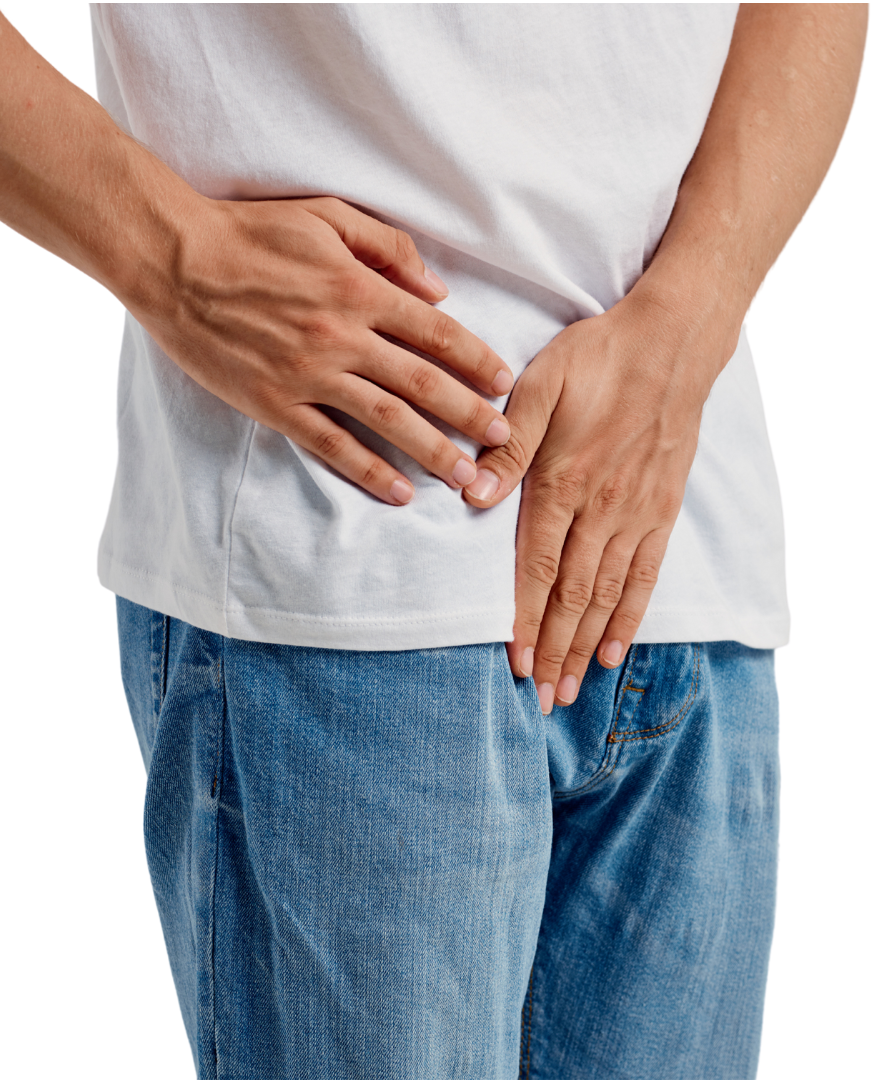Penile Pain
About Penile Pain
Penis pain can affect different parts of the penis, namely: the base, shaft, head or foreskin of the penis. The pain can vary depending on the type of disease or illness, some pain gradually gets worse while acute pain during an erection or urination is likely to be sharp or severe. Regardless, any form of pain, aches, itch or discomfort that is experienced at the penis should warrant a visit to the doctor if it happens often.

What Causes Penile Pain
Peyronie’s Disease
Balanitis
Balanitis is the infection of the foreskin and head of the penis. It affects men who don’t regularly wash under their foreskin or who haven’t been circumcised. But it can also affect men who have been circumcised.
There are other causes of balanitis, such as:
- Sexually Transmitted Infection (STI)
- Yeast Infection
- Allergy to soap, perfumes & other products
Priapism
Priapism needs to be treated immediately to prevent long-term effects that may affect your ability to have an erection.
Penile Cancer
Penile Fracture
Symptoms of Penile Pain
Pain
Itchiness
Other Symptoms
A Message About Penile Pain
While local causes of penile pain may be the obvious source of pain, referred pain from other causes can commonly present as penile pain. Bladder stones often present as the tip of the penis pain. Some urine tract infections as well as prostatitis can present as painful penis.
While we aim to treat the underlying causes of penile pain, there is a group of patients who are suffering from nerve-type pain – neuropathic pain. These are often nerve hypersensitivity of the penis, caused by irritation and nerve injury from other causes. Despite the eradication of the underlying medical conditions, once the nerve is stimulated or sensitized, it continues to persist as chronic penile pain. Penis being highly innervated, it is difficult to reverse the nerve-type pain once it has been set in place.
Diagnosing Penile Pain
Here at Singapore Paincare, our team of experienced primary care and specialist pain care doctors, together with the Urologist, will conduct a thorough diagnosis. This includes a physical exam, questions about your symptoms and an evaluation of your medical history. An X-ray or CT scan and/or PET scan may be needed to evaluate or confirm the degree and cause of pain.
What Treatments Are Available for Penile Pain?
In many instances, non-surgical treatment methods can provide excellent outcomes. At Singapore Paincare, we strive to treat your pain with the least invasive option possible after accurately identifying the cause. Our pain resolution approach focuses on removing pain generators via specialised injection and minimally invasive procedures. Combined with pharmacological treatments and cognitive and physical rehabilitative therapies. We help patients to improve their functions and prevent pain from recurring.
Non-Surgical Treatments for Penile Pain
Hormone Therapy
Anti-inflammatory drugs
Cognitive Psychotherapy and Physiotherapy
Cryoablation
Neurospan Radiofrequency Desensitization
Penile Prosthetics
Pharmacotherapy
Surgical Treatment for Penile Pain
In the case that all methods are exhausted, surgery may be recommended only if you are a suitable candidate. As surgery always comes with associated risks, complications and downtime, it may not be suitable for everyone. You should carefully weigh the decision before deciding to go under the knife by considering the pros and cons of both non-surgical methods and surgical reconstruction.
Surgical treatment
How Can I Prevent Penile Pain?
You can reduce your chances of developing penile pain by:
- Using condoms during sex
- Avoid rough movements that can potentially injure your penis
- Avoid having sex with anyone who has an active infection
- People with repeated infections or problems with their foreskin may consider having circumcision or make sure to thoroughly clean the foreskin to get rid of smegma or dead skin cells
Get Your Pain Resolved
Send your enquiries or consult our pain experts today.


